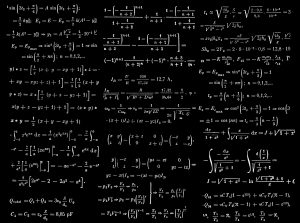Why Children with ADHD Benefit from Structured Math Training

Introduction
ADHD in children can present unique challenges in various aspects of their lives, including academics. Math, in particular, can be a challenging subject for children with ADHD. However, there is a solution that can help them overcome these difficulties and unlock their potential – structured math training. In this article, we will explore why structured math training is essential for children with ADHD and how it can benefit their cognitive development. By understanding the advantages of this approach, parents can provide their children with the necessary tools and support to succeed in mathematics.
The Challenges of ADHD in Mathematics
Children with ADHD often struggle with mathematics due to several factors. One of the primary challenges is poor working memory and attention span. These cognitive functions are crucial for understanding math concepts and solving problems. Children with ADHD may find it difficult to focus on complex tasks or remember multiple steps involved in solving mathematical equations. As a result, they may become easily overwhelmed and frustrated.
Another challenge is impulsivity. Children with ADHD often act without thinking, which can lead to careless mistakes in mathematical calculations. Additionally, their impulsivity makes it challenging for them to follow step-by-step instructions or maintain attention during math lessons.
Structured Math Training: A Solution for ADHD
Structured math training provides a solution for children with ADHD by addressing their specific learning challenges. This approach breaks down complex math tasks into manageable steps, reducing cognitive overload and helping children maintain focus. By providing clear instructions, visual supports, and routines, structured math training offers the predictability and organization that children with ADHD need to succeed.
One of the significant benefits of structured math training is its impact on working memory. Research has shown that children with ADHD demonstrate deficits in working memory, making it difficult for them to retain and manipulate information. Structured math programs help children improve their working memory by providing repetitive practice, reinforcing concepts, and integrating visual aids.
Another advantage of structured math training is its effect on problem-solving and critical thinking skills. Children with ADHD often struggle with planning, attention, and logical thinking. Structured instruction, combined with cognitive strategies, helps develop these skills in a systematic way. Research has demonstrated that children who receive structured math instruction show significant improvement in problem-solving, math fluency, and the ability to transfer skills to new tasks.
Structured math training also plays a vital role in reducing anxiety and building confidence. When math is taught in a structured and supportive environment, children with ADHD experience less frustration and anxiety. Success with manageable steps boosts their confidence, increases engagement, and fosters a positive attitude towards math.
Multi-Sensory Learning in Structured Math Training
Structured math training often incorporates multi-sensory learning techniques that are highly beneficial for children with ADHD. These techniques engage multiple senses simultaneously, making the learning process more enjoyable and effective.
Visual aids are commonly used in structured math programs to help children visualize mathematical concepts. Graphs, diagrams, and illustrations provide a visual representation that enhances understanding and retention. This visual support is especially useful for children with ADHD who may struggle with abstract concepts.
Movement-based activities are another aspect of structured math training that benefits children with ADHD. Research has shown that physical movement helps improve attention and focus in individuals with ADHD. Incorporating movement into math lessons through activities such as counting while jumping or hopping can help children with ADHD stay engaged and focused.
Gamified activities are also prevalent in structured math training. These activities turn math into a fun and interactive experience, increasing motivation and participation. By incorporating elements of play and competition, gamified activities capture the attention of children with ADHD and encourage their active involvement.
The Role of Structure in Math Training for ADHD
Structure plays a crucial role in math training for children with ADHD. Children with ADHD often struggle with organizing their thoughts and following multi-step procedures. Structured math programs provide clear guidelines, routines, and instructions that help children understand and follow mathematical concepts.
Consistency and predictability are important aspects of structured math training for children with ADHD. These children thrive in environments where they can anticipate what will happen next. Knowing the routine of a math lesson and having clear expectations reduce anxiety and allow children with ADHD to focus on learning.
The step-by-step nature of structured math training aligns well with the needs of children with ADHD. Breaking down complex tasks into manageable steps reduces cognitive overload and makes math more approachable. This approach helps children with ADHD develop a systematic problem-solving strategy that they can apply to various mathematical concepts.
Benefits of Structured Math Training for Children with ADHD
|
Benefit |
How Structured Math Training Helps |
|---|---|
|
Improved focus & attention |
Clear routines and stepwise tasks reduce distractions and cognitive load |
|
Better working memory support |
Breaking problems into steps aids memory and information retention |
|
Enhanced problem-solving |
Strategy-based instruction builds logical thinking and planning skills |
|
Reduced anxiety |
Predictable structure lowers stress and frustration |
|
Increased confidence |
Success in small steps fosters self-esteem and motivation |
|
Engagement & enjoyment |
Multi-sensory, interactive methods make math accessible and fun |
Conclusion – Unlocking the Potential with Structured Math Training
Structured math training offers significant advantages for children with ADHD, addressing their learning challenges while supporting cognitive development. By providing routine, predictability, and clear instructions, this approach helps children improve their working memory, enhance problem-solving skills, reduce anxiety, and build confidence.
For parents looking to support their children’s mathematical learning, structured math training provides an effective solution. Programs like SIP Abacus offer world-class skill development programs that focus on developing mental math abilities in children. Through the use of an abacus tool and visualization techniques, these programs support the cognitive development of children with ADHD.
By enrolling their children in structured math training courses, parents can provide them with the necessary tools and support to succeed in mathematics. The benefits of structured math training go beyond academics and extend to overall cognitive development, confidence building, and problem-solving skills. With the right approach and support, children with ADHD can overcome their difficulties in math and unlock their true potential.
Remember, every child is unique, and it’s important to consult with professionals, such as teachers or educational specialists, to determine the best approach for your child. With structured math training and the right support system in place, children with ADHD can thrive and excel in mathematics.



